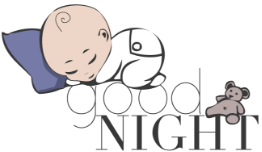By Jolandi Becker – MD of Good Night
Often breastfeeding and sleep are thought to be part of two different worlds. Many people will tell you that your child won’t be able to sleep through the night until you stop breastfeeding. Tell that to my daughter who was breastfed until she was 12 months old, and slept through from when she was 4 months old!
As Sleep Consultants we know the advantages and struggles of breastfeeding and we always try to protect the breastfeeding relationship. However, we also keep in mind the importance of sleep on overall health and wellbeing. We are sleep consultants after all, NOT lactation consultants, so when it comes to moms who struggle with breastfeeding we will always refer them to the correct medical professional.
Let’s keep on busting some myths about breastfeeding and getting a good night’s sleep:
- If you breastfeed your baby won’t be able to sleep through the night.
At Good Night we have helped thousands of families who breastfeed and formula feed, so I can tell you with certainty that both breastfed and formula-fed babies struggle with sleep. And miraculously both also sometimes spontaneously sleep through the night early on.
- You can’t sleep train a child if you are breastfeeding
Very often, our perceptions of sleep training hinder our ideas about breastfeeding. What is your perception of sleep training? Do you think it means putting your child in a cot and letting them cry all night? Our programme is far more advanced and complex than that. For the consultants at Good Night, we approach sleep from a holistic point of view (we consider sleep associations, day sleep, bedtime routine, nutrition, environment, etc.), making sure everything is in place to ensure that your little one sleeps as best as they can. This does not always mean sleeping through the night, as a full night’s sleep depends on the age and weight of your baby.
A very important benefit of breastfeeding is bonding. Breastfeeding mothers are less likely to develop postpartum depression. They have increased amounts of oxytocin in their bodies, which encourages caregiving, relaxation and bonding between mother and child. But as every mother knows from first-hand experience, this benefit can fade away when your baby is 11 months old and wakes up every hour at night. Breastfeeding then becomes hard work as the lack of sleep can likely cause serious health problems for mom and baby. It’s similar to someone telling you “I love you” 1000 times a day; the effect is a bit less special, especially after 11 months of hearing it!
- You have such a big baby, so he/she will be more hungry and feed more frequently
As your baby grows bigger so does his/her stomach, which means they can ingest larger quantities which helps them to stretch between feeds and at night. This is also the reason why small newborn babies will still wake up at night to feed.
- Your baby is small you should start formula or solids and then they will sleep through
The less time your baby spends at the breast, the less time your breast will be stimulated and this could lead to a decreased supply of milk. So, if you want to incorporate formula feeding, it is best to speak to a lactation consultant. Remember, both formula and breast-fed babies can have sleep issues.
Starting with solids too soon can also have risks which include eczema, allergies, kidney malfunction, etc., and can lead to health problems which can cause your baby to wake up at night.
Sleeping through the night is not the same for every baby. It depends on your baby and when they are ready. We prefer to give the parent and the baby a natural opportunity to drop feeds, instead of doing it forcefully.
Breastfeeding is hard enough. Not sleeping is hard enough. Let’s not make parenting any harder but rather make sure that the relationship between restful sleep and breastfeeding works in harmony as they were meant to.
References
#sleeptraining

